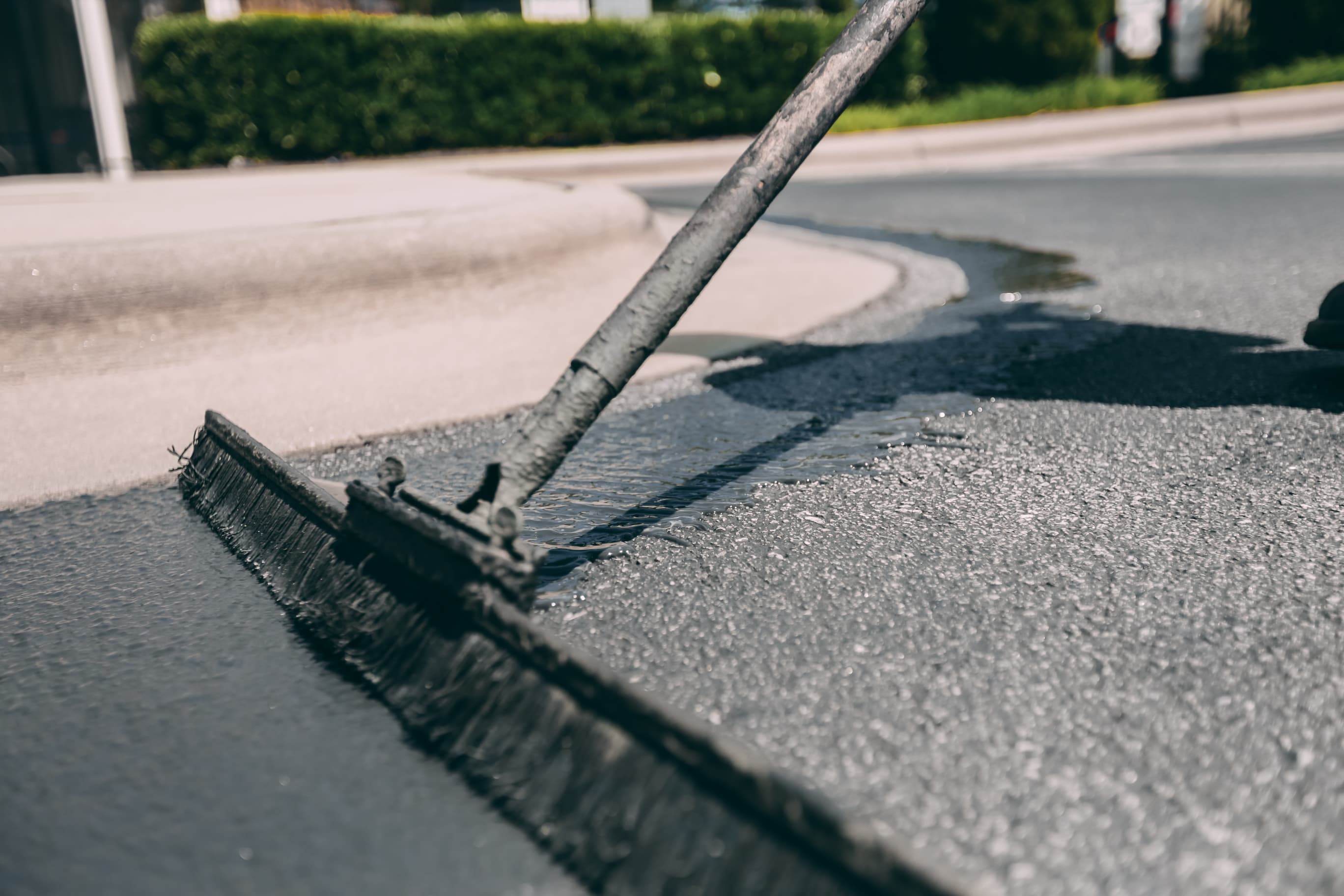Revitalize Angle Parking Lots: Asphalt Sealing Techniques Exposed
Revitalize Angle Parking Lots: Asphalt Sealing Techniques Exposed
Blog Article
Cold Mix Asphalt Vs. Hot Mix Asphalt: Which Is Right for You?

Make-up Differences
Cold mix and warm mix asphalts differ substantially in their make-up, with unique characteristics that affect their efficiency and applications. Cold mix asphalt is created by emulsifying the asphalt binder with water and an emulsifying representative prior to mixing it with aggregate. This approach enables for the asphalt to be convenient at reduced temperatures, making it perfect for short-term fixings and for use in colder weather. Warm mix asphalt, on the other hand, is manufactured at heats, usually in between 300-350 ° F, which aids to achieve much better compaction and a much more resilient end product. The warm mix asphalt production procedure includes warming the accumulation and asphalt binder independently before integrating them at the asphalt plant.
Moreover, cold mix asphalt often tends to be much less thick and a lot more flexible than hot mix asphalt. This adaptability makes it far better suited for areas with greater levels of movement, such as driveways or roads with hefty web traffic. In contrast, warm mix asphalt is understood for its high longevity and resistance to rutting and fracturing, making it a favored choice for freeways and high-traffic roadways where longevity is crucial.
Installment Process Differences
The process of installing cold mix and hot mix asphalt shows notable differences in their treatments and needs. In contrast, hot mix asphalt requires a much more intricate setup procedure. Due to the home heating requirements, hot mix asphalt setups are usually carried out by specialists with customized devices, making certain an extra structurally audio and permanent outcome.
Resilience and Long Life Aspects
When taking into consideration asphalt choices, resilience and longevity are essential factors to review for lasting pavement efficiency. Hot mix asphalt (HMA) is recognized for its exceptional durability and long life.
In terms of long life, HMA usually outshines CMA as a result of its premium stamina and resistance residential properties. HMA pavements have a longer life span, requiring less constant repair work and upkeep, which can equate to set you back financial savings in the lengthy run. Additionally, HMA sidewalks are more quickly personalized to satisfy particular project requirements, additionally improving their resilience.
Expense Factors To Consider
Considering the monetary effects is an important facet when examining the selection between hot mix asphalt (HMA) and cool mix asphalt (CMA) for sidewalk projects. While the initial cost of hot mix asphalt is commonly more than that of chilly mix asphalt, HMA usually supplies an extra cost-effective option in the future as a result of its superior toughness and longevity. HMA is known for its capability to hold up against rush hour loads and harsh weather condition conditions, minimizing the need for frequent repair work and upkeep. On the various other hand, cold mix asphalt is a lot more cost effective ahead of time but might require more frequent patching and resurfacing, resulting in higher maintenance costs over time.
Along with material expenses, it's important to think about the costs connected with installation and upkeep when contrasting HMA and CMA. HMA usually needs specific equipment and experienced labor for proper installment, which can influence overall job prices. On the other hand, CMA is much easier to work with and can usually be used utilizing simpler strategies, potentially reducing installation expenditures. Ultimately, the choice between HMA and CMA need to take into account not simply the initial expense but likewise the long-lasting economic implications to determine the most cost-efficient alternative for the specific sidewalk project.
Environmental Impact Comparison
Comparison of the ecological impacts between warm mix asphalt (HMA) and cold mix asphalt (CMA) exposes distinctive differences in sustainability methods. HMA manufacturing requires heats, leading to enhanced power consumption and greenhouse gas discharges. The process additionally releases unpredictable organic substances (VOCs) and unsafe air toxins (HAPs) into the environment. In comparison, CMA is produced and applied at lower temperature levels, reducing energy usage and exhausts significantly. The lower manufacturing temperature levels of CMA lead to reduced fuel usage and reduced degrees of CO2 discharges, making it a more eco-friendly alternative.
Furthermore, the use of CMA frequently includes reusing existing asphalt sidewalk, advertising resource conservation and reducing the quantity of waste sent out to garbage dumps. By deciding for CMA over HMA, roadway building and construction projects can add favorably to ecological preservation initiatives.
Conclusion
To conclude, the option in between chilly mix asphalt (CMA) and warm mix asphalt (HMA) depends upon various aspects such as composition, installation process, longevity, longevity, price, and environmental impact. asphalt patch repair. While CMA supplies a quick and economical service for minor repair work, HMA makes sure premium resilience and durability for hefty website traffic locations. Consider these elements very carefully to establish which angle parking sort of asphalt is the right option for your paving requires

Taking into consideration the economic ramifications is an important aspect when examining the selection between warm mix asphalt (HMA) and cold mix asphalt (CMA) for pavement jobs. While the initial cost of warm mix asphalt is typically greater than that of cold mix asphalt, HMA typically offers an extra affordable service in the lengthy run due to its premium toughness and durability. asphalt repair.Comparison of the ecological influences in between hot mix asphalt (HMA) and cool mix asphalt (CMA) exposes unique differences in sustainability techniques.In final thought, the choice in between cold mix asphalt (CMA) and warm mix asphalt (HMA) depends on numerous factors such as make-up, installment procedure, sturdiness, durability, price, and environmental influence
Report this page